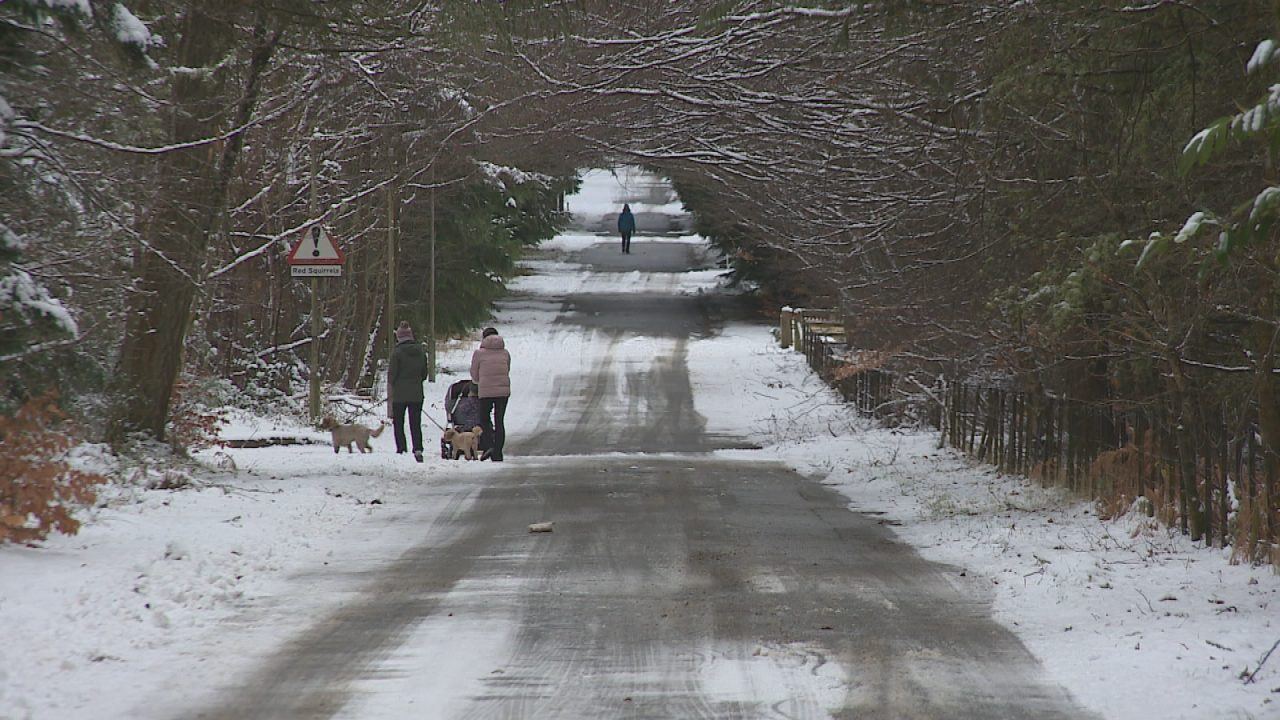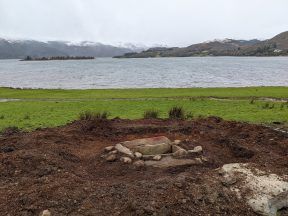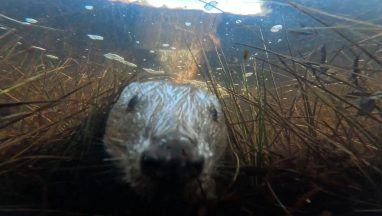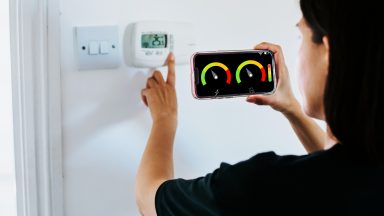Key Points
-
 Scotland braced for cold snap as temperatures could plummet to -15C
Scotland braced for cold snap as temperatures could plummet to -15C -
 A fresh yellow warning covers Aberdeenshire, Moray, the Highlands and Islands has been extended until Friday
A fresh yellow warning covers Aberdeenshire, Moray, the Highlands and Islands has been extended until Friday -
 Over 150 schools and nurseries closed and transport cancelled
Over 150 schools and nurseries closed and transport cancelled -
 40 gritters prepared to patrol roads on Thursday with temperatures to plummet
40 gritters prepared to patrol roads on Thursday with temperatures to plummet -
 Disruption to travel expected across rail, road, ferry and air routes
Disruption to travel expected across rail, road, ferry and air routes
More than 150 schools and nurseries are closed across the north of Scotland as a severe weather warning for snow and ice has been extended until Friday morning.
Up to 15cm of snow is expected over higher parts of the country, according to forecasters, after temperatures plunged below freezing overnight.
On Wednesday, the depth of snow at Loch Glascarnoch was around 20cm, while in Aviemore, it was around 14cm and 13cm in Tulloch Bridge.
The Met Office has warned that snow showers, sleet and ice will lead to poor road conditions, with schools and nurseries likely to remain closed.
Temperatures could plummet to -15C in some areas on Thursday, with the lowest official temperature on Wednesday being -10.4C at 11pm in Tulloch Bridge.
The yellow warning, which is now in place until 10am on Friday, covers much of western and northern Scotland, including Grampian, the Highlands, Orkney, and Shetland.
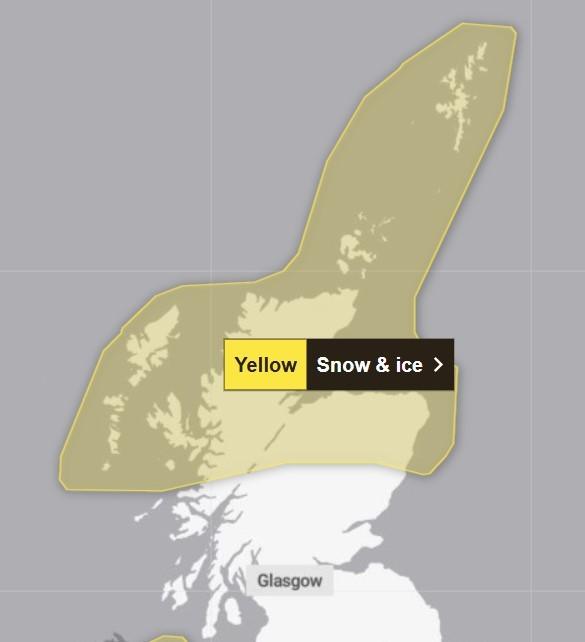 Met Office
Met OfficeOn Thursday, more than 140 primary and secondary schools and nurseries were closed in the Highlands due to poor weather in the area.
In Aberdeenshire, 17 schools were closed and a number of others delayed with school transport in the area also cancelled amid hazardous road conditions.
Stagecoach confirmed a number of public and school services were closed in Orkney, Inverness and Aviemore.
BEAR Scotland South East said 44 gritters will be out in force across the region on Thursday night with temperatures expected to plummet.
Dozens of patrols vehicles will also be deployed across many regions overnight.
The forecast reads: “Sleet and snow showers will continue for the rest of Wednesday and Thursday, before dying out by the end of Thursday evening. Northwest Scotland and the Northern and Western Isles will see the most frequent showers on Wednesday, before extending to the Northeast on Thursday.
“Further accumulations of 3-7 cm are expected to low levels, with 10-15 cm possible above 150 metres. Where any modest daytime thaw has occurred, icy stretches are likely on untreated surfaces.”
All flights were suspended at Aberdeen Airport on Tuesday morning as passengers faced a second day of disruption after issues with de-icing planes arose on Monday.
The airport said operations resumed shortly after 10am.

Insight Philip Petrie Weather presenter
Well, for the last couple of days of the week, we have been stuck under the influence of northerly winds, dragging bitterly cold Arctic air in from the north.
This means we continue to see wintry showers feeding in across the north of the country, a mix of hail and snow for most. However, come Friday, we start to see a bit of a change.
High pressure will start to build in and influence our weather come Friday, cutting off the northerly flow of cold winds, we lose the showers and things will be mainly dry and settled for much of Scotland.
The high pressure stays in charge throughout Saturday and Sunday, helping to keep several weather systems that are trying to push in from the west at bay.
Come Sunday, we will be in a south-westerly airflow, which means milder air will be moving in, and things will be turning less cold.
Before that, though, we need to get through a couple of very cold nights. With clear skies and largely dry conditions tonight, temperatures will rapidly drop away leading to an extensive widespread frost and temperatures dropping to lows of -13C for the likes of Braemar, -10C in West Linton and most towns and cities below freezing.
Then come tomorrow night, we have no cloud whatsoever across the country, dry and clear conditions and this is when we could see lows of -15C or -16C in some rural Glens, and widely -4C to -8C in the main towns and cities.
Follow STV News on WhatsApp
Scan the QR code on your mobile device for all the latest news from around the country


